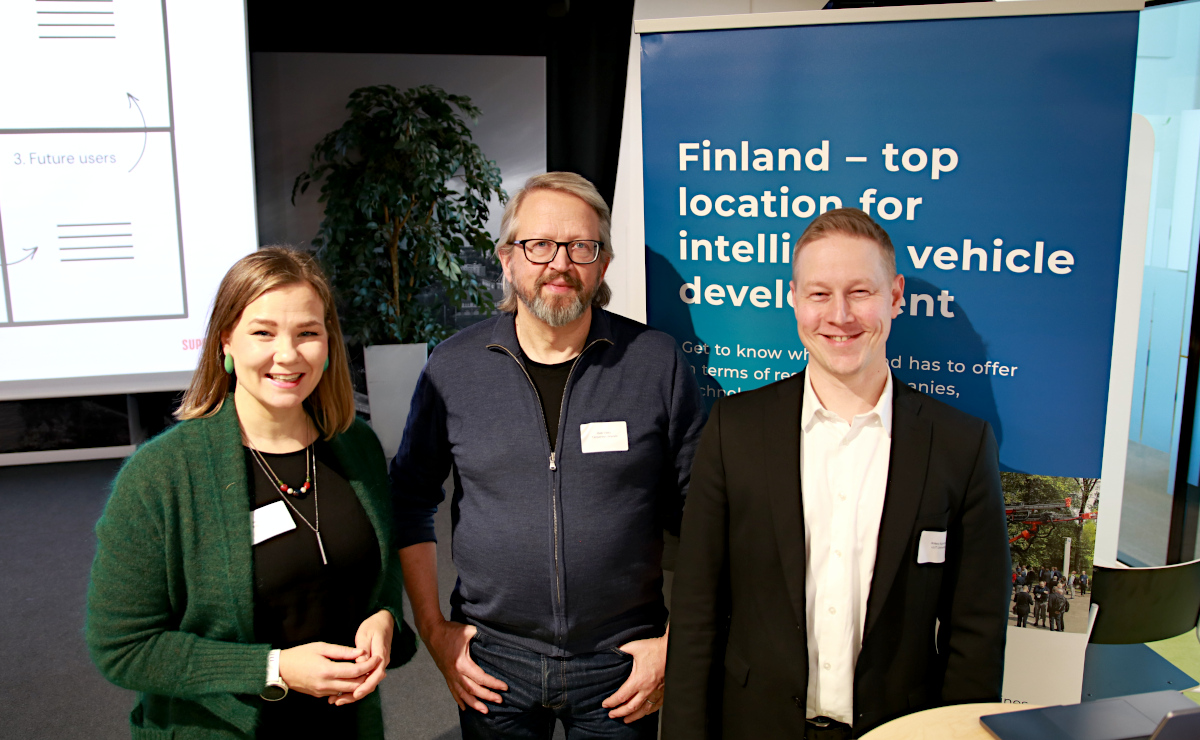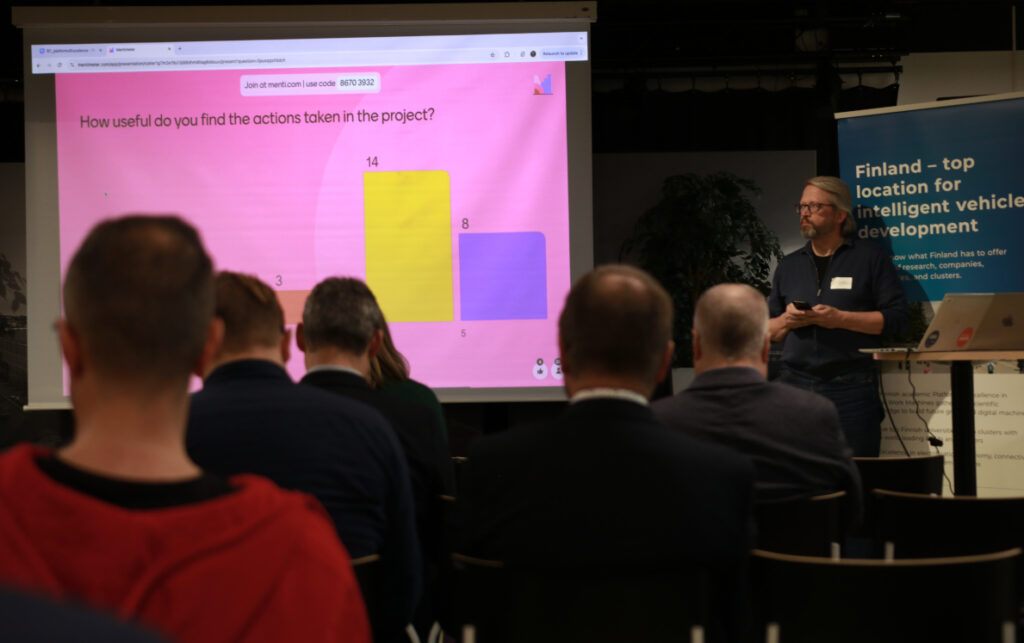Cooperation on mobile work machines: Competence centre taking operations to a new level

The national promotion of the double transition of mobile work machines is on a strong footing. The roadmap and cooperation between five universities boost Finnish competence.
The national network of mobile work machines promotes the double transition of the industry in accordance with the plans of the roadmap prepared by industry and researchers. Competence on the research side is developed with the help of the Platform of Excellence.
Recent measures to promote the double transition have included strengthening the international network, mapping business and educational needs and identifying the possibilities and stumbling blocks of regulation.
“Internationality is an important part of the Platform of Excellence network and benefits operators in the long term. This work has been strengthened by inviting a few key players from Europe to join the network,” says team leader Heini Wallander from Business Tampere.
“We have been very successful in bringing together Finnish expertise. There is a lot of expertise here, but we cannot settle for self-sufficiency. We also need international leaders and operators in our network,” Wallander continues.
The roadmap as yellow pages
At the Platform of Excellence seminar in Tampere on 30 October, Miika Kaski from Sandvik presented industry trends: low-carbon, automation and robotics, as well as the role of data, are bringing reforms to the field of mobile work machines. Cooperation between companies enables the development of new technologies. Competing for talent is a separate issue.
The network has surveyed the current research on mobile work machines and their electrification at universities and research topics for the near future, as well as what will be studied at the vision level.
The participants in the seminar reflected on the optimal ways to use the roadmap in the future. It is hoped that the information contained in the roadmap will work interactively for companies; for example, to support recruitment, guide the development of the company and help them identify their own strengths. It can also serve as a source of inspiration and information for doctoral thesis writers.
It is hoped the roadmap’s “yellow pages” will help solve problems and reach the right people.
“The roadmap is like the yellow pages of the past. For example, a product development engineer can use it to easily find out which researcher at which university has developed the theory and solutions for the planning task that concerns them,” says Professor Matti Vilkko from the University of Tampere.

National cooperation has strengthened
In addition to Tampere, the Platform of Excellence and the related research network currently include universities in Helsinki, Oulu, Lappeenranta and Turku. Each university has a designated contact person and a coordinator, Academic Fellow, to continue and develop the activities.
Professor Matti Vilkko believes that the Academic Fellows will ensure that research is brought out of university silos and into national cooperation.
In addition to the roadmap and the doctoral pilot programme, cooperation is also being carried out with other doctoral programmes related to artificial intelligence, for example.
“The majority of PhD students are international students who we would also like to keep in Finland,” Vilkko says.
“Companies play an important role in this,” Wallander adds.
The SIX business cluster and the FIMA cooperation forum have led the cooperation in the industry. The SIX business cluster is celebrating four years of cooperation. Networking work on the excellence platform has been carried out over the past two years under the InnoCities flagship project.
“We have done this for the whole of Finland. The work benefits the entire country’s industry,” says Heini Wallander.
Wallander, who has facilitated international networking and workshops, is pleased that companies support cooperation so strongly in the field of mobile work machines.
“Facilitating Business Tampere enabled us to focus on our own areas of expertise,” said Professor Matti Vilkko at the Platform of Excellence in Mobile Work Machines seminar on 30 October.
The participants agree that it is good to continue the activities by taking them to the next level, such as in the form of a competence centre. It remains to be seen in what form this will be done.
“The competence centre strengthens the continuity of operations and the organisation of the network and takes it to the next level,” Vilkko believes.
International networking will continue in the near future in the form of a workshop related to the sharing of research data, among other things. New EU projects are promoted together with research partners and VTT.
Follow the upcoming activities on the SIX cluster channels! SIX | Sustainable Industry X
The Future Mobile Work Machines seminar will be held in October 2025.
Main image: Heini Wallander from Business Tampere, Matti Vilkko from the University of Tampere and Antero Kutvonen from LUT University at the seminar on mobile work machines in Tampere on 30 October 2024.
SIX-Poe is one of the lead themes of InnoCities. Thematic cooperation brings together the resources of different cities and promotes the sharing of good practices as well as international cooperation and investments. The aim is to expedite the reform of business and the implementation of sustainable solutions in cities. InnoCities support innovation and engage in the practical application of research and experiment.
This article is the third and final part about the SIX-PoE project.
Previous article: Network of mobile work machines: “We build long-term cooperation instead of competition” – Innokaupungit
